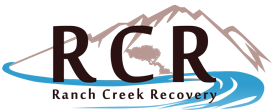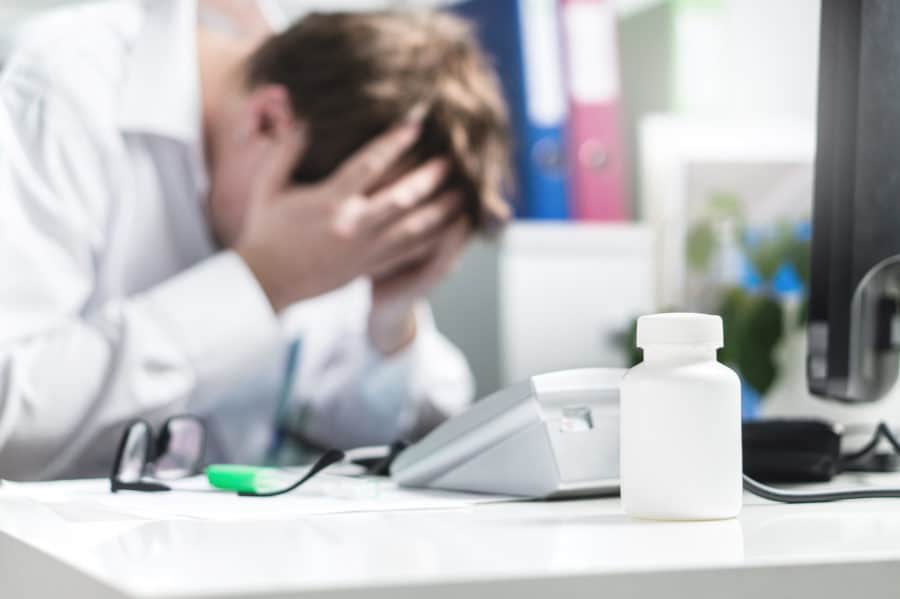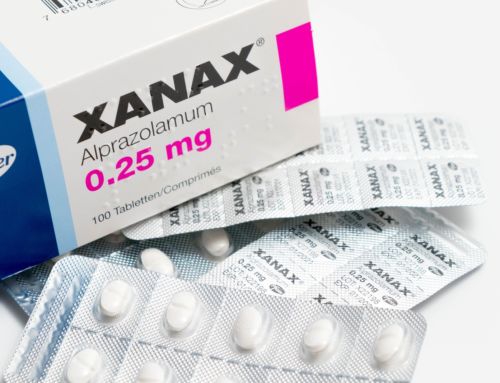For most healthcare professionals, managing the needs of other people is an everyday responsibility. While some focus on the physical ailments impacting the lives of their patients, others turn their attention to the internal workings of the mind. The manner in which healthcare professionals help carry the burdens of the patients they serve is far reaching and constant.
In doing so, the actual needs and problems that impact a healthcare professional personally can sometimes get neglected and overlooked, leaving that provider to ignore their own issues until they become too hard to handle.
In those cases, it is not uncommon for an individual to turn to unhealthy means of stress management, such as self-medicating with drugs or alcohol, to manage their struggles. If you’re a nurse, doctor, EMT or another healthcare professional struggling with addiction right now, understanding what you’re going through can help.
Addiction in Medical Professionals
Being a medical professional doesn’t make you immune from substance abuse. The stress that you experience can not only become overwhelming at times (especially with COVID-19), but it can also force you to cope with your daily emotions through less than healthy methods of stress management.
Recent research has indicated that nearly 40 percent of all medical professionals reported experiencing emotional, physical, and psychological burnout at times from their job, leading to increased instances of substance use and addiction within the profession.
Making the situation worse is the fact that medical professionals typically have easier access to certain prescription medications, including pain killers and antidepressants. This not only increases the potential for prescription drug abuse, but it also can put patients they’re caring for in danger due to the addictive behavioral patterns they are living with.
Addiction in Doctors
Due to the stressors and high stakes associated with the medical profession, 69 percent of doctors reported that they had abused prescription medication to relieve stress and physical or emotional pain at some point in their careers.
While access to prescription medications is readily available to most physicians, a nationwide study indicated that alcohol is the most commonly abused substance among doctors in the U.S.
Considering that the national average of alcohol abuse among the entire United States population is 6.2 percent, it is concerning that 12.9 percent of male physicians and 21.9 percent of female physicians admitted to abusing alcohol to the point of meeting the qualifications of a diagnosable substance use disorder.
Addiction in Nurses
Just like their medical counterparts, nurses have reported significantly higher rates of substance abuse and addiction. People within the profession reported increased levels of prescription pill abuse, as well as, more frequent instances of binge drinking.
These instances of self-medicating have been attributed to:
- The stress of dealing with patients on a daily basis
- The lack of support nurses tend to experience from the doctors within their facilities
- The potential for case management overload
These personal stressors – combined with the physical toll that is associated with common nursing duties, like bending, lifting heavy patients, being on their feet all day, etc. – create a scenario where addiction can not only originate, but it can actually flourish.
Medical Professionals and Addiction: Break the Cycle You’re Caught Up In
Working as a healthcare professional is a commendable occupation. However, having the bravery and fortitude to admit you are struggling with a substance use problem is not only a personal achievement; it is another way you can safely and effectively care for the patients that you have committed your life to protecting.
That’s because it is imperative to take care of yourself before you can actually take care of those around you. For any healthcare professional struggling with a substance addiction, there is no way to provide for the needs of others if your personal health and overall wellbeing is compromised.
Fortunately, there are clinical treatment providers who have committed their lives to helping people overcome their substance addiction through therapeutic techniques and interventions rooted in healing the mind, body and soul.
Because, after all, doing no harm is not only a phrase used to guide the medical practices you provide, it is a mantra that reinforces the importance of maintaining self-care and achieving personal wellbeing.
Holistic Addiction Treatment at Ranch Creek Recovery’s Tranquil Rehab Center
With customized treatment plans that fit your unique recovery needs and offering an alternative to the traditional 12-step program, Ranch Creek Recovery’s holistic treatment services will help you stop abusing drugs or alcohol and forge a fulfilling, clean future.
Our treatment programs have a six-client max. This allows us to provide you with complete, individualized care and 24/7 support. Through every treatment program, holistic mindfulness and addiction recovery walk hand-in-hand, helping you center your mind, body and spirit as you begin to forge your new, sober life.
Learn more about our addiction treatment programs. Have questions? We’re here to help in any way we can. Contact us today.













